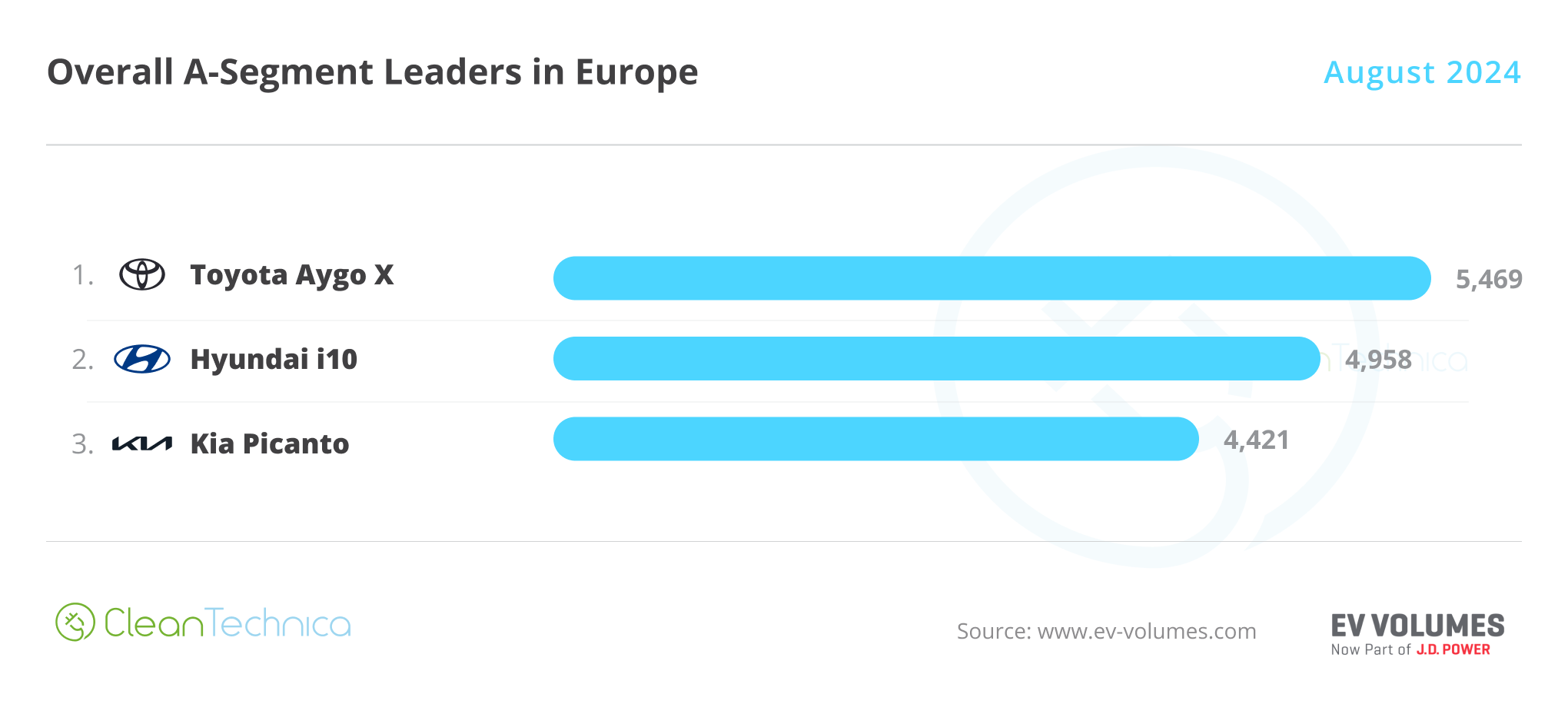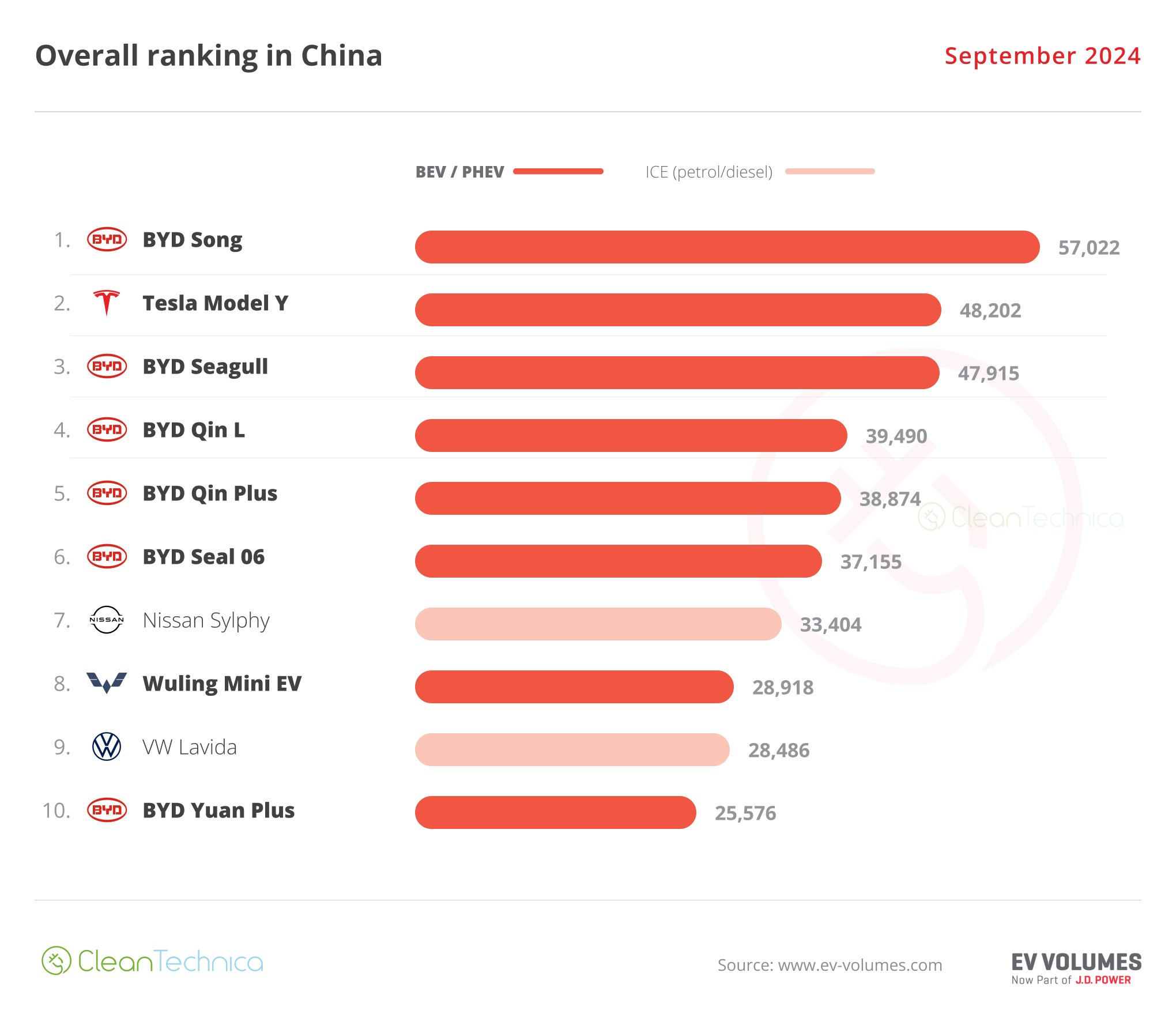Sign up for daily news updates from CleanTechnica on email. Or follow us on Google News!
The Scout Motors branch of Volkswagen is finally ready to unveil its first electric SUV and pickup truck, and the company may have just hit upon one key selling point that could help EV-curious drivers actually go out and buy electric vehicles.
One Weird Trick For Electric Vehicles
If you’re thinking that Scout Motors is looking to juice the sales picture by offering to attach a gas tank to its electric vehicles, that’s a good guess. It’s also a correct guess, though it’s not the one I’m thinking of.
In a press release describing the new Scout Traveler SUV and the new Scout Terra pickup concepts, Scout Motors explains that both vehicles will be offered as pure electric vehicles with up to 350 miles of range, or with an optional range extender consisting of a gas generator to bring the total range up to 500 miles.
That’s a gas generator, not to be confused with a gas engine as part of the drivetrain. Similar to GM’s short-lived Chevy Volt, the idea is to provide drivers with the security blanket and extended-range convenience of a gas tank, but without a conventional gas engine. The generator produces electricity to supplement the battery pack when needed.
GM halted production of the Volt in 2019, but I still spot them on the road every now and then. Perhaps GM should have stuck with the idea. In addition to Scout, other automakers are also reintroducing the battery-plus-gas-generator option on their electric vehicles, as an alternative to the more familiar plug-in hybrid approach.
Electric Vehicles & The Two-Car Household
In terms of what it will take to accelerate EV sales, some interesting theories have been floating up through the Intertubes in recent days. One theory is that two-car families with one EV are reluctant to convert their other car because they value and/or need the familiar convenience of a quick gas-up for longer trips. The hybrid range extender option could help convince two-car households to electrify their whole fleet.
Back in the olden days, a two-car family typically had one multi-purpose car that could do everything, and one old “station car” that was only reliable for short distances and local errands. Going by Scout’s press materials, the optional gas generator is aimed at encouraging more two-car households to continue using a pure EV for shorter trips, while trading in their gasmobile for an extended-range EV. Ideally the gas generator would see as little use as possible, even on longer trips, as the public EV charging station network matures.
That’s an important angle for automakers, like Scout, which are trying to appeal to households where flexibility is a key priority whether they own more than one car or not.
“Scout vehicles are multiuse tools which will allow Scout Motors customers to accomplish many things. They are designed for the makers, doers, and everyday explorers,” Scout enthuses.
“Building the next “8-day-a-week truck” also means letting Scout vehicle owners personalize their vehicles for a variety of use cases,” Scout emphasizes. “Scout Motors will offer a full portfolio of accessories, including auxiliary lighting, assist steps, power off-boarding solutions, off-road bumpers with recovery points, a heavy-duty winch, and more.”
Another Weird Trick: The Return Of The Buttons (& The Dials)
Scout’s pitch also reflects Volkswagen’s revival of the dashboard festooned with buttons and dials instead of piling everything into a touch screen.
I’m all for that. Toggling around the keypad of a smart phone without looking is a neat trick that may have inspired some automakers to transfer that onto electric cars, but there’s a difference between half-pound phones and electric vehicles ranging up to 3,000 pounds and more.
As reported here at CleanTechnica and many other news organizations last year, Volkswagen CEO of Passenger Cars Thomas Schäfer publicly stated that it was a huge mistake to banish the buttons from his company’s electric vehicles, leading to a torrent of complaints from customers who had difficulty navigating the commands while driving. It “did a lot of damage to the brand,” Schäfer told Autocar.
“Once you have it, don’t touch it again. Don’t confuse our customers every time a new model comes out and something is completely different. Optimize it. Bring into the future. But don’t change buttons from here to there, to there and here,” he added.
Accordingly, the Chief Design Officer of Scout Motors, Chris Benjamin, emphasizes that his company’s electric vehicles “should always be a helpful companion” that “always enable the customer to do the things they want to do and make their experience easier, better, faster.”
That doesn’t mean touch screens and remote control are absent. Instead, Scout is aiming for a balance between convenience and ease of handling, including the use of accessories. “Powered accessories are projected to be integrated into the Scout user experience, assigned to switches, and in some cases controlled by the customer’s mobile app, so installation, set-up, and control are easy,” the company explains.
No, I Meant This One Weird Trick
The return of buttons and dials (and switches) could be the element that changes the hearts and minds of EV-hesitant drivers. However, that’s still not the one weird trick I’m thinking of.
If you guessed manually operated door handles is the trick, run right out and buy yourself a cigar. That’s it. That’s the ticket.
“Scout vehicle capability will largely be controlled through a tactile experience. From mechanical door handles, to grab bars, to switches and dials, Scout vehicles will provide a real hands-on user experience,” the company explains.
I’m guessing the emphasis on mechanical door handles is partly a reaction to the tragic, headline-making death of a high profile Tesla driver last spring, reportedly trapped in her vehicle when the doors wouldn’t open. Other reports of trapped drivers soon surfaced. The situation can be avoidable — after all, Tesla does provide instructions on how to open the doors of its electric vehicles manually from the inside in case of need — but in terms of publicity the damage was done. Safety-conscious drivers will want manual operation to be a primary feature, not an as-needed alternative.
Selling More Electric Vehicles, Faster
As for the rest of the Scout pitch, Volkswagen is crafting a brand identity for independent, hands-on “makers and doers” who are not tied to a touchscreen all day.
The remake of the original 20th century, pre-touchscreen Scout brand into a suite of electric vehicles that can handle climate emergencies is also evident in the offer of tires up to 35 inches, providing for more than a foot of ground clearance and almost three feet of “water fording capability” along with V2X capability, over-the-air software upgrades and other 21st century systems (see more Scout background here).
Want one? Production is anticipated in 2027. Reservations started yesterday for a fully refundable $100 fee at Scout Motors, where you can get all the specs and information on up-front costs.
Fleet managers, take note: The cost of an EV battery is set to drop like a rock by the time Scout goes into production, and electric vehicles already scored favorably in most of the total cost of ownership scenarios recently analyzed by RMI (Rocky Mountain Institute), covering five different kinds of common fleets.
Follow me via LinkTree, or @tinamcasey on Threads, LinkedIn, and Instagram.
Photo (cropped): The new electric vehicles from Scout Motors parlay dials, buttons and switches into a rugged 1970’s-era DIY off-grid vibe with 21st century V2X capability and other modern electronic systems (courtesy of Scout Motors).
Chip in a few dollars a month to help support independent cleantech coverage that helps to accelerate the cleantech revolution!
Have a tip for CleanTechnica? Want to advertise? Want to suggest a guest for our CleanTech Talk podcast? Contact us here.
Sign up for our daily newsletter for 15 new cleantech stories a day. Or sign up for our weekly one if daily is too frequent.
CleanTechnica uses affiliate links. See our policy here.
CleanTechnica’s Comment Policy




